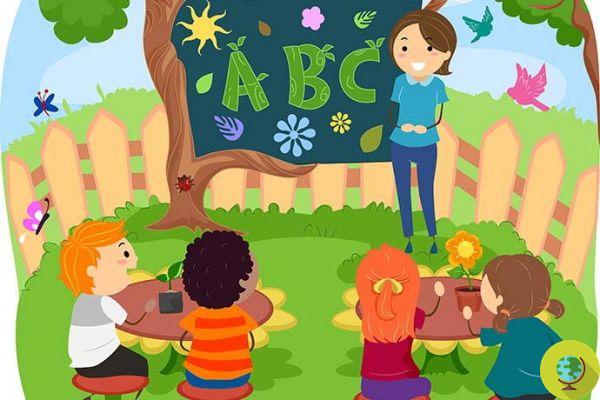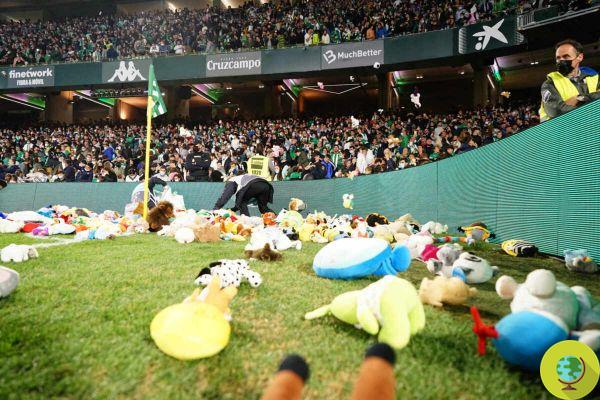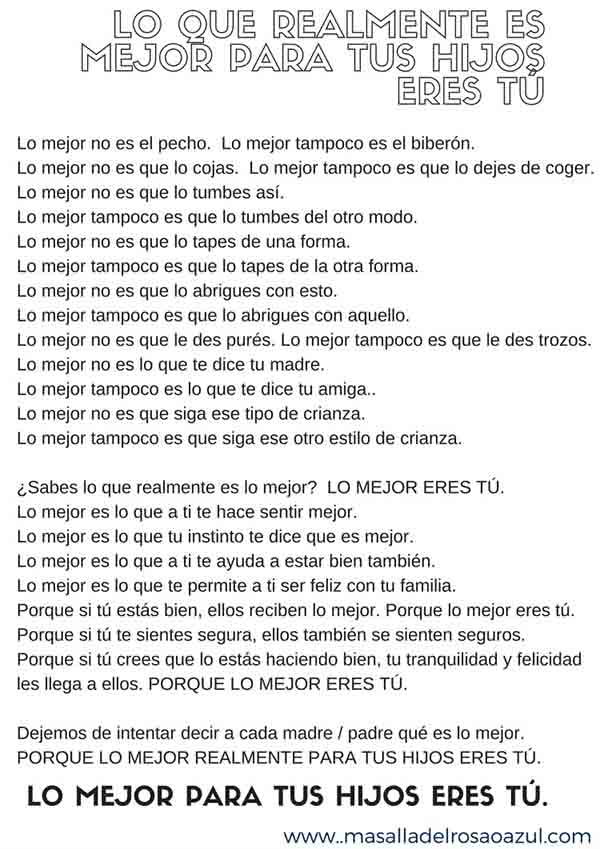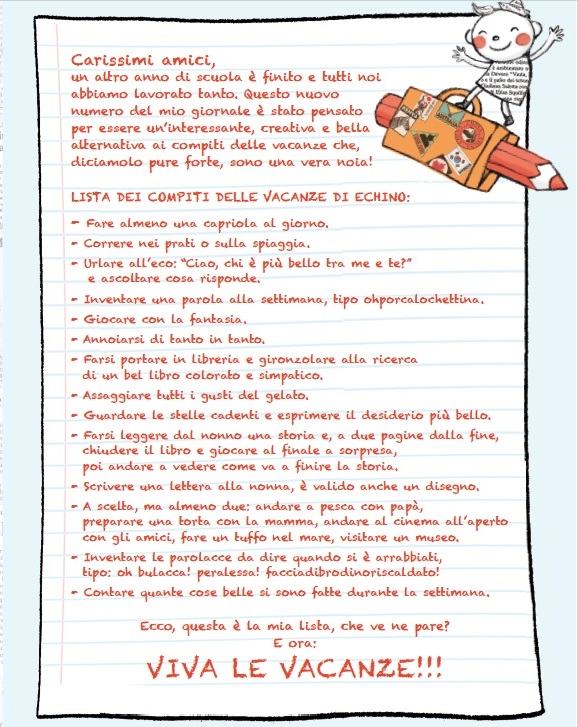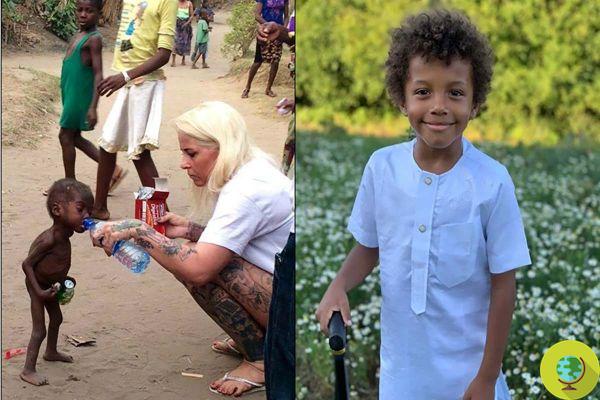
As a child, Anthony did not feel like everyone else: he had trouble reading and was considered "lazy" or, even worse, "stupid" by classmates and teachers. School hours were an interminable torture for him. No one, neither his parents, nor his teachers, understood that his was not a deficit of will or intelligence, but a learning disorder called dyslexia.
Don't store avocado like this: it's dangerous
As a child, Anthony did not feel like everyone else: he had trouble reading and was considered "lazy" or, even worse, "stupid" by classmates and teachers. School hours were an interminable torture for him. Nobody, neither his parents, nor the teachers, had understood that his was not a deficit of will or intelligence, but a learning disorder called dyslexia.
Anthony hamilton, today author of books (the most famous is The Autobiography of Strong Child) and motivational speaker, wanted tell the story of his difficult relationship with the school on the Ozy.com site, marked by a difficulty in reading and understanding the texts that his teachers and even his parents attributed to listlessness, disorder e poor intellectual skills. No one had understood what was the real problem that afflicted the child and, the more the years passed, the more frustration, anger and rejection of the school world grew in him.
La dyslexia, which can present in different forms and levels of severity, is a disorder characterized by the inability to read and understand a writing. If the child or girl suffering from dyslexia is given a standardized teaching, which does not take into account the existence of the disorder, it will be very difficult to achieve appreciable results, beyond the commitment and the energy lavished.
If, on the other hand, the problem is identified early and the teaching is modified accordingly, with targeted programs and, if necessary, with the support of some specialists (for example, a speech therapist), the little one will be able to gradually reach , the same learning goals as his peers. Why, precisely, a dyslexic child does not suffer from any intelligence deficit: it just needs to be followed differently, and particularly in the early stages of school learning, when it approaches reading, writing and calculating.
Unfortunately, dyslexia is often not recognized by those who follow the child, as happened to little Anthony many years ago, resulting in a situation of suffering, frustration and refusal of school education.
"As a child I was never taught the importance of receiving training, let alone how to use an adjective [...]" - he says the same Hamilton - “I was in class, but I wasn't there to learn to write or read or even speak. I could not verbally formulate what I felt inside, and I felt great anger. […] When it was my turn to read, I always wanted to hide. Every time I felt like throwing up. I was crying constantly, but not literally: my tears were falling into me. I was 13, and I already hated who I was. "
Feeling different from others, inadequate and incapable, led Anthony to have self-esteem problems and to experience school as a nightmare, as a constant source of humiliation. Especially since his difficulties were not only laughed at by his classmates, but also by some teachers. In particular, Hamilton remembers, from one of the teachers: that of English, who one day decided to have him read in front of everyone, even knowing that he would not be able to and thus put him in the lurch.
“I had an English teacher, Mr. Creech, who was part of my nightmare. He knew. He knew that I only attended two 'normal' classes every day and that most of the time I was assigned to a 'special' class. He knew I was unable to read. And he thought it was necessary to reveal my secret to everyone. He looked at me: 'Anthony,' he said, 'why don't you read us the next paragraph?' I didn't even know what a 'paragraph' was. I was trying to decipher what was in front of me, bravely. But the mere sound of my voice elicited instant laughter. "
Many years later, Anthony and Professor Creech meet again, fortuitously, and the former student, now an established man, is finally able to say what the child he had been wanted to scream so long ago, if only he could. .
“At 41, I returned to Texas to visit family and friends. On the way to the airport, my best friend suggested we stop for a drink at a nearby bar. We sat down and, in the smoke-filled room, I noticed a person. It was Mr. Creech, who was buying a drink. I ran up to him and put my hands in my pockets to offer him a drink. 'Have we met before?' he asked me, and I said, 'Yes, she knows me. My name is Anthony Hamilton and I went to his class. ' The expression on his face made me realize that he remembered well the boy he had laughed at. 'I'm glad I got a chance to see her.' I told him. 'And I have some good news to share.' I told him that I learned to read and became a motivational writer and speaker. Finally, I told him I wanted him to do me a favor and when he asked me what it was, I said: 'Next time you have another Anthony Hamilton in class, teach him to read. '"
Little Anthony, in short, made it: alone, without the support of those who should have helped and supported him. And his testimony is intended as a warning, so that no other child should suffer what he has suffered anymore.
“Experts say my problem had a name: dyslexia. But I can tell you that there was something else too. It was a lack of desire for education. Now this thing no longer belongs to me: now I'm hungry for verbs and adjectives, synonyms and paragraphs. I write to be the author of my own life [...] "
Today, fortunately, borderline cases like Anthony's are quite rare: dyslexia is a disorder of which teachers and educators have a growing awareness and the risk of a dyslexic child being marginalized, mistreated and even laughed at is certainly much lower than twenty or thirty years ago. Despite this, it is important to keep the attention on the topic high, so that the school can be for all children a place of growth, opportunity, inclusion, human warmth and maturation and not a source of frustration and humiliation.
Photo Credits
READ also
- Montessori method: how to apply it and why it works
- The teacher who every day congratulates his disabled students for 10 minutes (PHOTO and VIDEO)
- Alone and in a school 'lager' room: the sad discovery of the mother of a disabled child









